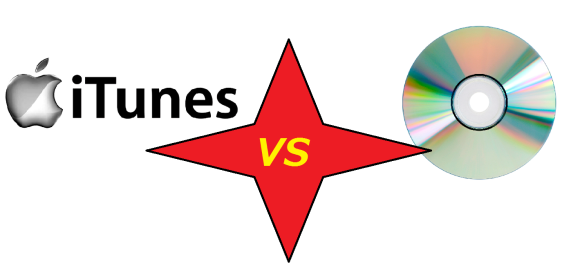
With a large music market and some of the world’s highest prices for physical releases, Japan has been very slow in adapting to digital distribution. Rights holders are finally warming up to the idea, though, and it doesn’t look like it’s ruining the industry in Japan. What downloadable music does seem to be doing, though, is splitting the country’s pop music market into two distinct parts, as the lists of Japan’s top 20 single downloads and CD purchases for the year are almost completely different.
Both Apple’s iTunes and Oricon, which counts only physical sales in its charts, recently released the rankings of their organizations’ most popular songs for 2014. Let’s start by checking out the iTunes standings:
20. Snow Magic Fantasy / Sekai no Owari
19. Nippon / Sheena Ringo
18. Hono to Mori no Carnival / Sekai no Owari
17. Tsuki / Namie Amuro
16. Koi Suru Fortune Cookie / AKB48
15. Problem (feat. Iggy Azalea) / Ariana Grande
14. Happiness / Che’Nelle
13. Mighty Long Fall / One OK Rock
12. We Are Never Ever Getting Back Together / Taylor Swift
11. Nijiiro / Ayaka
10. Umarete Hajimete / Kanda Sayaka and Takako Matsu
9. RPG / Sekai no Owari
8. Harukaze / Rihwa
7. Zutto feat. Han-kun & Tee / Spicy Chocolate
6. Darling / Kana Nishino
5. Happy / Pharrel Williams
4. Let It Go / Idina Menzel
3. Story of My Life / One Direction
2. Hiawari no Yakusoku / Motohiro Hata
1. Let It Go ~ Ari no Mama de ~ / Takako Matsu
Looking over the list, we can see it was a good year for rock band Sekai no Owari, and also Frozen, as the number 10 and 1 songs are the Japanese versions of “For the First Time in Forever” and “Let It Go.” But just as conspicuous as the Disney movie’s success is the startling shortage of appearances by Japan’s idol supergroups. As a matter of fact, the only representative of the subgenre is AKB48’s securing of the 16 spot.
Oricon’s single chart, though, tells a very different story.
20. Itta janai ka/Clover / Kanjani Eight
19. Hikame I love you! / HKT48
18. EE janai ka / Johnny’s West
17. Sakura, Minna de Tabeta / HKT48
16. King of Otoko! / Kanjani Eight
15. Rashikunai / NMB48
14. Takane no Ringo / NMB48
13. Bukiyou Taiyou / SKE48
12. The Revolution / Exile Tribe
11. Mirai to ha? / SKE48
10. Daremo Shiranai / Arashi
9. Natsu no Free & Easy / Nogizaka46
8. Kitzuitara Kataomoi / Nogizaka46
7. Nandome no aozora ka? / Nogizaka46
6. Bittersweet / Arashi
5. Guts! / Arashi
4. Kokoro no Placard / AKB48
3. Suzukake no Ki no Michi de “Kimi no Hohoemi wo Yume ni Mieru” to Itteshimattara Bokutachi no Kankei ha Dou Kawatteshimau no ka, Boku nari ni Nannichika Kangaeta Ue de no Yaya Hazukashii Ketsuron no you na Mono / AKB48
2. Mae Shika Mukanee / AKB48
1. Labrador Retriever / AKB48
The first thing to jump out is, obviously, idol unit AKB48 breaking the record for J-Pop’s most pretentiously long title with “Suzukake no Ki no Michi de “Kimi no Hohoemi wo Yume ni Mieru” to Itteshimattara Bokutachi no Kankei ha Dou Kawatteshimau no ka, Boku nari ni Nannichika Kangaeta Ue de no Yaya Hazukashii Ketsuron no you na Mono” (“I Spent Several Days Thinking About How Our Relationship Would Change If I Were to Say ‘Your Smile Looks Like a Dream’ on the Platan Tree-Lined Street, and Arrived at a Slightly Embarrassing Conclusion”). The second is that the list is dominated by multi-vocalist idol groups, without so much as a single solo act in the top 20.
AKB48 and its sister groups HKT48, NMB48, SKE48, and Nogizaka46, all of whom share the same producer, Yasushi Akimoto, accounted for a whopping 13 spots on the list. Johnny’s groups, boy bands under the Johnny’s Entertainment agency, grabbed another 6 with songs from Kanjani Eight, Johnny’s West, and Arashi.
The only act in Oricon’s top 20 outside of both Akimoto’s and Johnny’s expansive umbrellas is Exile Tribe, itself a conglomerate of pop/dance groups with ever so slightly more of a bad boy image than their Johnny’s counterparts.
At first glance, it might seem counterintuitive that these male and female idol groups did so poorly in downloads compared to physical media. Most of their fans are in their teens or early 20s, and ordinarily you’d be safe in assuming that young Japanese are more tech-savvy than older listeners. The reason these acts are able to sell so many CDs, though, lies in two prevalent marketing tactics and one distribution holdout.
First, Johnny’s doesn’t sell any of its artists’ music on iTunes. The management company keeps such a tight hold on control of its musicians that even on Amazon Japan you won’t find any pictures accompanying Johnny’s albums and CDs for sale.
▼ Search results for Arashi, Oricon’s top male band
Speaking of visual appeal, many idol groups release multiple versions of the same song. Since each group has so many members, often the same single will be sold with a variety of covers. For example, all five of these designs are for Oricon’s number-one song, AKB48’s “Labrador Retriever,” and if you’re a true fan, you’ll do all you can to put a smile on those 48 faces by buying each and every one.
▼ AKB48-mon, gotta catch ‘em all!
But probably the biggest reason for fans to buy physical CDs is the common practice of putting in raffle tickets for prizes or passes to autograph or handshake sessions. The more you buy, the greater your chance of winning.
In light of this, Japanese website Go Go Tsushin suggests that the Oricon list shouldn’t be taken so much as a reflection of the most popular songs, but the most popular promotions.
It’s a point that’s at once both valid and moot. While the logic is sound, if the goal of all consumer products is perceived customer happiness and the profits they bring, there’s an argument to be made that the idol groups should be judged on their considerate ability to deliver a complete package of satisfaction to their fans. For many, just being able to see their idols up-close is a major life event, even if there’s no chance of the connection ever going any deeper than their pressed palms (except for when the CDs are offering a chance to actually go on a date with the performers, that is).
Sources: Go Go Tsushin via Hachima Kikou
Top image: Logonoid, Info Escola (edited by RocketNews24)
Insert images: Amazon Japan (1, 2, 3, 4, 5, 6, 7, 8, 9)

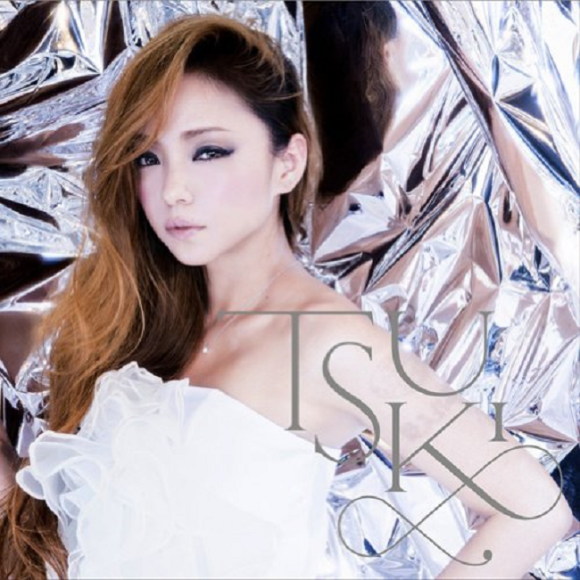
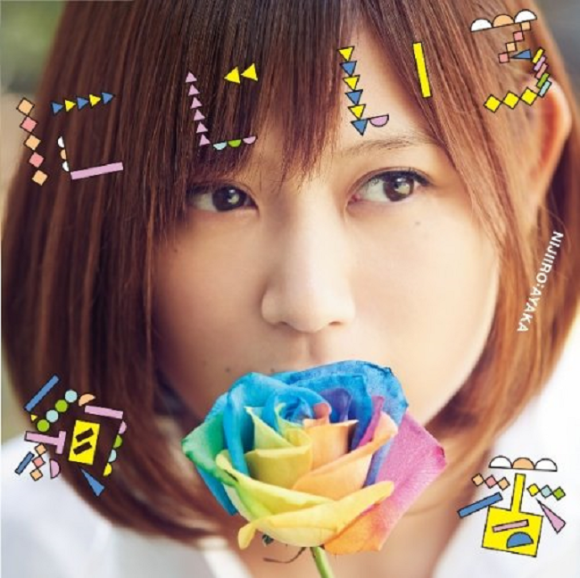

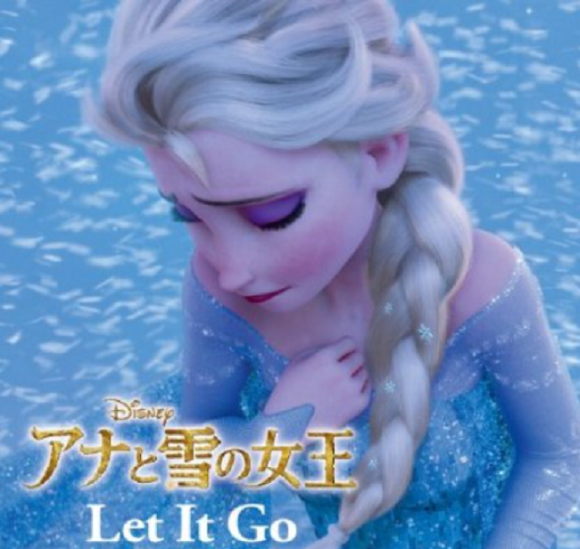
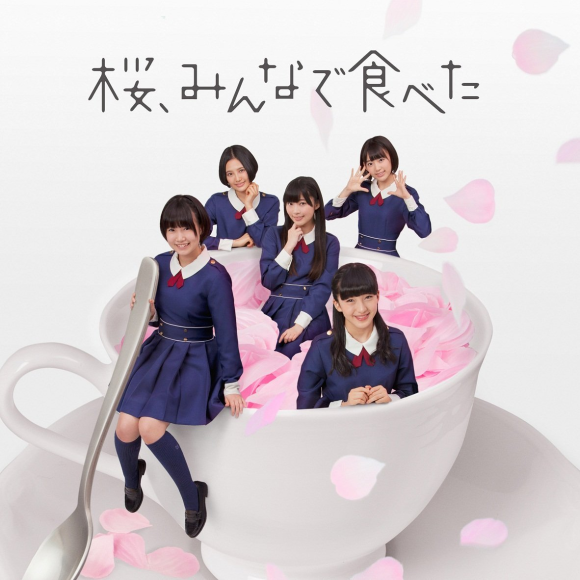
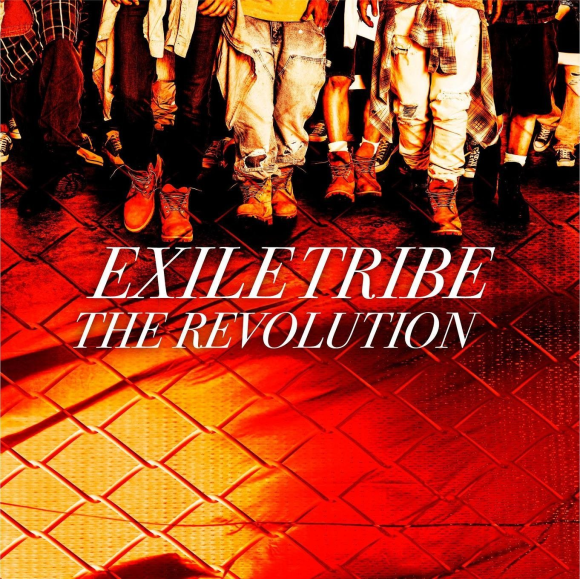

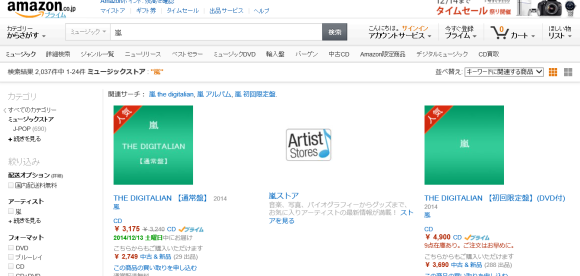

 How to enjoy Japanese idol music if you hate its sweetness: Pretend they’re not singing about YOU
How to enjoy Japanese idol music if you hate its sweetness: Pretend they’re not singing about YOU Unhinged Japanese boyband fan stalks “rival” on Twitter, demands they delete their account
Unhinged Japanese boyband fan stalks “rival” on Twitter, demands they delete their account SMAP idol group members issue farewell messages to fans
SMAP idol group members issue farewell messages to fans Idol group AKB48 sells 2.5 million copies of new CD, bags full of them end up in trash days later
Idol group AKB48 sells 2.5 million copies of new CD, bags full of them end up in trash days later Namie Amuro’s retirement announcement re-sparks debate on who should sing at the Olympics
Namie Amuro’s retirement announcement re-sparks debate on who should sing at the Olympics McDonald’s new Happy Meals offer up cute and practical Sanrio lifestyle goods
McDonald’s new Happy Meals offer up cute and practical Sanrio lifestyle goods McDonald’s Japan releases a pancake pie for new retro kissaten coffeeshop series
McDonald’s Japan releases a pancake pie for new retro kissaten coffeeshop series Studio Ghibli glasses cases let anime characters keep an eye on your spectacles
Studio Ghibli glasses cases let anime characters keep an eye on your spectacles All-you-can-drink Starbucks and amazing views part of Tokyo’s new 170 meter-high sky lounge
All-you-can-drink Starbucks and amazing views part of Tokyo’s new 170 meter-high sky lounge The oldest tunnel in Japan is believed to be haunted, and strange things happen when we go there
The oldest tunnel in Japan is believed to be haunted, and strange things happen when we go there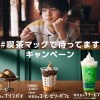 McDonald’s Japan goes old-school with new Showa-era Kissa Mac sweets lineup【Photos】
McDonald’s Japan goes old-school with new Showa-era Kissa Mac sweets lineup【Photos】 Studio Ghibli releases new action figures featuring Nausicaä of the Valley of the Wind characters
Studio Ghibli releases new action figures featuring Nausicaä of the Valley of the Wind characters Is the new Shinkansen Train Desk ticket worth it?
Is the new Shinkansen Train Desk ticket worth it? Kyoto’s 100 Demons yokai monster parade returns!
Kyoto’s 100 Demons yokai monster parade returns! Beautiful Sailor Moon manhole cover coasters being given out for free by Tokyo tourist center
Beautiful Sailor Moon manhole cover coasters being given out for free by Tokyo tourist center Disney princesses get official manga makeovers for Manga Princess Cafe opening in Tokyo
Disney princesses get official manga makeovers for Manga Princess Cafe opening in Tokyo More foreign tourists than ever before in history visited Japan last month
More foreign tourists than ever before in history visited Japan last month Starbucks reopens at Shibuya Scramble Crossing with new look and design concept
Starbucks reopens at Shibuya Scramble Crossing with new look and design concept Beautiful new Final Fantasy T-shirt collection on the way from Uniqlo【Photos】
Beautiful new Final Fantasy T-shirt collection on the way from Uniqlo【Photos】 Foreign English teachers in Japan pick their favorite Japanese-language phrases【Survey】
Foreign English teachers in Japan pick their favorite Japanese-language phrases【Survey】 Japanese convenience store packs a whole bento into an onigiri rice ball
Japanese convenience store packs a whole bento into an onigiri rice ball We try out “Chan Ramen”, an underground type of ramen popular in the ramen community
We try out “Chan Ramen”, an underground type of ramen popular in the ramen community Studio Ghibli releases Kiki’s Delivery Service chocolate cake pouches in Japan
Studio Ghibli releases Kiki’s Delivery Service chocolate cake pouches in Japan Japan’s bone-breaking and record-breaking roller coaster is permanently shutting down
Japan’s bone-breaking and record-breaking roller coaster is permanently shutting down New definition of “Japanese whiskey” goes into effect to prevent fakes from fooling overseas buyers
New definition of “Japanese whiskey” goes into effect to prevent fakes from fooling overseas buyers Our Japanese reporter visits Costco in the U.S., finds super American and very Japanese things
Our Japanese reporter visits Costco in the U.S., finds super American and very Japanese things Studio Ghibli unveils Mother’s Day gift set that captures the love in My Neighbour Totoro
Studio Ghibli unveils Mother’s Day gift set that captures the love in My Neighbour Totoro Foreign passenger shoves conductor on one of the last full runs for Japan’s Thunderbird train
Foreign passenger shoves conductor on one of the last full runs for Japan’s Thunderbird train Domino’s Japan now sells…pizza ears?
Domino’s Japan now sells…pizza ears? New Japanese KitKat flavour stars Sanrio characters, including Hello Kitty
New Japanese KitKat flavour stars Sanrio characters, including Hello Kitty Kyoto creates new for-tourist buses to address overtourism with higher prices, faster rides
Kyoto creates new for-tourist buses to address overtourism with higher prices, faster rides Sales of Japan’s most convenient train ticket/shopping payment cards suspended indefinitely
Sales of Japan’s most convenient train ticket/shopping payment cards suspended indefinitely Sold-out Studio Ghibli desktop humidifiers are back so Totoro can help you through the dry season
Sold-out Studio Ghibli desktop humidifiers are back so Totoro can help you through the dry season Japanese government to make first change to romanization spelling rules since the 1950s
Japanese government to make first change to romanization spelling rules since the 1950s Ghibli founders Toshio Suzuki and Hayao Miyazaki contribute to Japanese whisky Totoro label design
Ghibli founders Toshio Suzuki and Hayao Miyazaki contribute to Japanese whisky Totoro label design Doraemon found buried at sea as scene from 1993 anime becomes real life【Photos】
Doraemon found buried at sea as scene from 1993 anime becomes real life【Photos】 Tokyo’s most famous Starbucks is closed
Tokyo’s most famous Starbucks is closed One Piece characters’ nationalities revealed, but fans have mixed opinions
One Piece characters’ nationalities revealed, but fans have mixed opinions We asked a Uniqlo employee what four things we should buy and their suggestions didn’t disappoint
We asked a Uniqlo employee what four things we should buy and their suggestions didn’t disappoint Princesses, fruits, and blacksmiths: Study reveals the 30 most unusual family names in Japan
Princesses, fruits, and blacksmiths: Study reveals the 30 most unusual family names in Japan We ask Arashi fans why the boy band is so popular… because we couldn’t figure it out ourselves
We ask Arashi fans why the boy band is so popular… because we couldn’t figure it out ourselves Goat added as official member to Japanese idol group
Goat added as official member to Japanese idol group AKB48 and South Korean idol groups perform hits at music awards, turns out to be a disaster
AKB48 and South Korean idol groups perform hits at music awards, turns out to be a disaster Keeping up with the kids: Japanese high schoolers’ most popular slang of Spring 2022
Keeping up with the kids: Japanese high schoolers’ most popular slang of Spring 2022 AKB48, Japan’s biggest idol singer group, apologizes for selling “Date Tickets”
AKB48, Japan’s biggest idol singer group, apologizes for selling “Date Tickets” Japanese idol singer responds to fan who gushes over how much he loves her thighs
Japanese idol singer responds to fan who gushes over how much he loves her thighs Sailor Moon fails to take the top spot in Japan’s giant Sailor Moon anime popularity poll
Sailor Moon fails to take the top spot in Japan’s giant Sailor Moon anime popularity poll Starbucks celebrates its 25th anniversary in Japan with a special commemorative drinkware range
Starbucks celebrates its 25th anniversary in Japan with a special commemorative drinkware range Awesome melon bread with ice cream comes to Shibuya, so we do too!
Awesome melon bread with ice cream comes to Shibuya, so we do too! Talent agency frustrated at idol fans’ aggressiveness, tells them to stop on official website
Talent agency frustrated at idol fans’ aggressiveness, tells them to stop on official website Japanese version of Frozen 2’s “Into the Unknown” is a powerful return for Elsa’s singer in Japan
Japanese version of Frozen 2’s “Into the Unknown” is a powerful return for Elsa’s singer in Japan Cultural differences spoiling the sing-along version of Frozen for some fans
Cultural differences spoiling the sing-along version of Frozen for some fans Jennifer Connelly sang a Japanese song that became a number one hit single in Japan 【Video】
Jennifer Connelly sang a Japanese song that became a number one hit single in Japan 【Video】
Leave a Reply